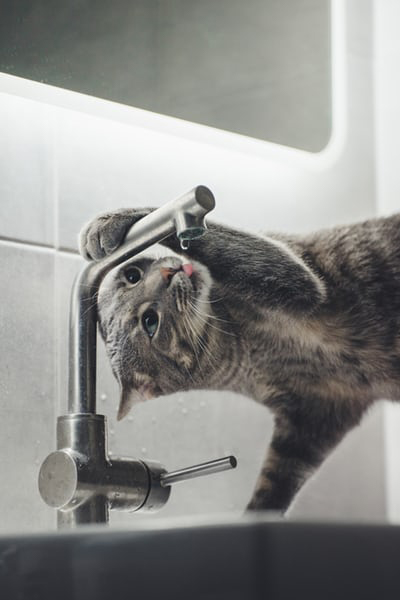Media – Cat Bladders
Water Matters
Question:
My cats don’t like to drink cold water and since giving them lukewarm water I haven’t had any problems with urinary infections. I used to have a cat with a urinary problem at least once a year. You might want to suggest it to your patients who have a cat with a urinary problem.
Dr. Nichol:
You have made a rather canny observation. While only 1.4% of bladder disease in cats is related to infection about 64% of these problems are inflammatory but sterile. Research has shown that increasing a cat’s moisture intake is associated with a reduced risk of bladder disease. By making your cats’ water more attractive to them you have improved their health. I’m impressed.
Water fountains have been promoted as a way of increasing water consumption. A very good study found no effect.
How about adding salt? That would make anybody thirstier but wouldn’t all that sodium load raise blood pressure? In his scientific paper: Dietary Salt and Cats, Brice Reynolds, PhD concludes that, “Healthy cats can adapt to a wide variation in dietary salt intake. High salt levels in dry diets reliably increase urine output and dilution, which in turn decreases … the theoretical risk of CaOx uroliths (bladder stones).” Dr. Reynolds concluded that. “All studies performed to date in cats indicate that blood pressure is not salt sensitive in this species.”
Add salt? Not at my house. I certainly support evidence-based medicine but I want to see more research before sodium loading the 2 Nichol family cats. They consume generous volumes of moisture because they eat canned food, which is a safe, research-supported method of reducing the risk of urinary disease.
That’s not all. The higher protein and lower carbohydrate content of canned cat food controls weight naturally because it mimics the nutritional profile of mice – the natural feline diet. Kitties fed from a can are more likely to retain their svelte, athletic physiques with an almost zero risk of diabetes. Obesity, on the other hand, creates inflammation – the major contributor to painful arthritis in aging joints. Drink more, eat fewer carbs, weigh less, and live well.
Each week Dr. Jeff Nichol makes a short video, blog, or a Facebook Live to help bring out the best in pets. Sign up at no charge at drjeffnichol.com. Dr. Nichol treats behavior disorders at the Veterinary Emergency & Specialty Centers in Albuquerque and Santa Fe (505-792-5131). You can post pet behavioral or physical questions at facebook.com/drjeffnichol or by US Post to 4000 Montgomery Blvd. NE, Albuq, NM 87109.


